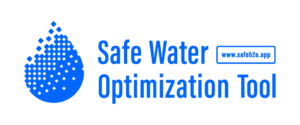
Humanitarian operations have little in place to ensure that water quality complies with safety guidelines at the point of consumption, a significant oversight in response efforts.
Chlorination is the most widely practised water treatment technique used to supply safe water to refugees and internally displaced persons. If well managed, it can ensure residual contamination protection from the point of water dispensation to the point of water consumption in the household.
Humanitarian agencies prioritize water safety and routinely collect, monitor and report residual chlorination data. Little is done, however, to leverage this information to ensure that water quality complies with safety guidelines at the point of consumption, a significant oversight in response efforts.
The proper management and analysis of routinely collected residual chlorine data, using appropriate statistical techniques, will provide humanitarian field workers with high-quality, site-specific, and evidence-based operational guidance. The Safe Water Optimisation Tool (SWOT) is being developed with this primary objective. It aims to:
- Improve public health by reducing the incidence of water borne disease
- Establish site-specific guidance to ensure stricter compliance with chlorination standards at the household level
- Improve accountability to populations and donors
- Highlight problematic areas or practices towards which resources can be focused during water supply interventions or outbreak control
With Médecins Sans Frontières / Doctors Without Borders
You may also be interested in...
Recap – Summer 2024 Climate Cafés
This summer (June 27 and July 8, 2024), participants joined a calm, welcoming, and respectful environment to discuss ‘Climate Distress to Action’. Climate distress is the natural emotional and mental distress that arises when people ...Read more about this Post
Reflecting on Black Educators and Education with Black History Month Panellists
Originally published by News@York (27 February 2024) “February is Black History Month, but we make history every day” –Ruth Rodney, associate director, Harriet Tubman Institute Education, particularly math education, is not a neutral space for Black students. It ...Read more about this Post
Recap — Are Distinctions Between Communicable and Non-Communicable Diseases Still Useful? Why We Should Care, with Paul McDonald
On October 9, 2024, York University Professor Emeritus and Dahdaleh Senior Fellow Paul McDonald asked seminar attendees to re-consider the traditional distinctions between communicable and non-communicable diseases (NCDs). He argued that, like many models, frameworks, ...Read more about this Post
